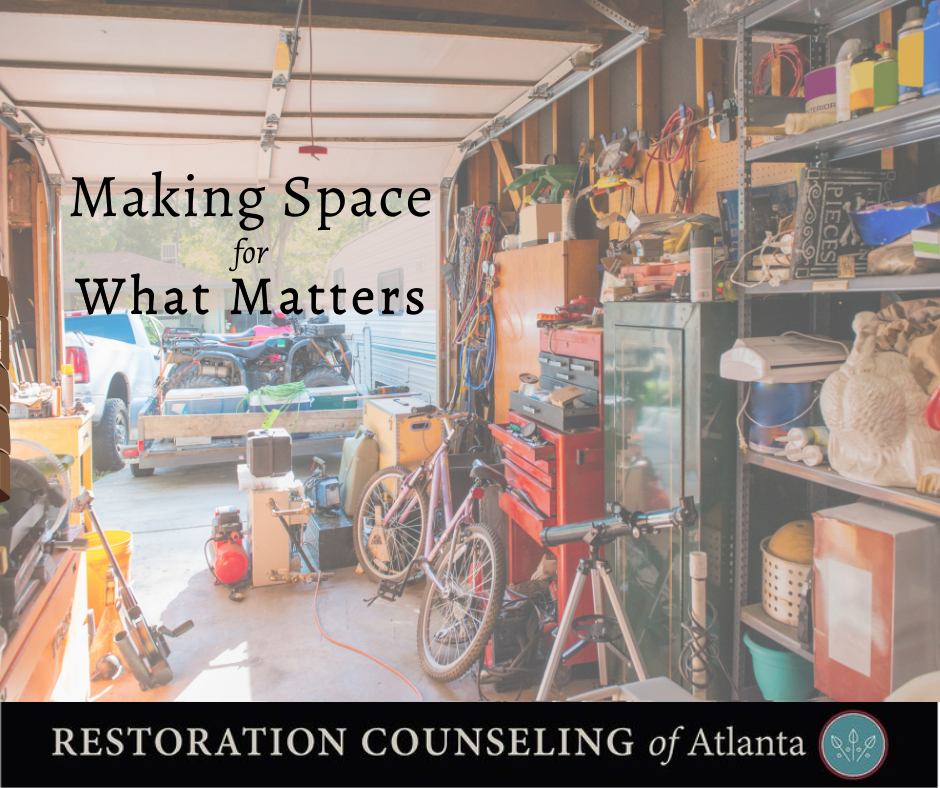When you search your home for something you need, do you often find frustration? Is clothing cluttering your closet? Is your basement brimming, and attic chock-full? Does paying for or maintaining your possessions take time away from family, friends, or finding fun?
Let’s face it. We can’t really have it all. If we own too many things, we don’t have enough space. If we are working long hours to pay for things, we don’t have much time to relax and enjoy them. Reality often forces us to examine our values and make choices. If we are not careful, we may find that instead of owning things, our things begin to own us.
Last year, I made a commitment to conquer the clutter. My long-time dream of living aboard a boat was about to come to fruition and 30 years of possessions stuffed into a large home needed to be whittled down to fit into 750 square feet. Within a year I sorted through everything that I owned. I filled four dumpsters, donated truckloads of items, gave things away to friends and family, and held an online estate sale. It was more of a mental, emotional, and physical challenge than I bargained for, but during the process I learned much and am grateful for the experience. Whether your goal is to clean out a closet, declutter an attic, or close an entire estate, I hope that these tips will pave the way to a process that will help you make more room for what matters.
Master the Mental
Decluttering your space requires mental motivation. Motivation can be stirred by having a vision of yourself that aligns with what you value. Take a few minutes to explore your values and assess if possessions are getting in the way of your peace. Think about how you want to live your life in the space you plan to declutter. For example, if you want to declutter your kitchen and organize cupboards, consider how the finished project will impact your life. Will you enjoy cooking more at home because you enjoy the space? If you cook more at home, will you eat healthier and save money? Will you entertain more? Creating a vision for how your space will look as well as how it will help you function and live according to your values will help you get the job started. Reminding yourself of the vision when the work becomes arduous, will help you get the job done.
Embrace the Emotional
Decluttering and simplifying may be an emotional process. Sometimes people say, “It’s just stuff,” to minimize the value of a thing that is lost, broken, or given away. It is also a phrase that reminds us that there are other things in life, like health and relationships, that have greater value. However, for many, the things they own provide a sense of security, or may be reminders of people and important life events. Some items are symbolic of a legacy and passed from one generation to the next. It may all be, “just stuff,” but it represents something more. If you find that strong emotions are standing in the way of progress, try:
- Taking time to honor and embrace your emotions. Explore the reason behind your emotions.
- Taking time to honor the symbolic meaning of the item. Remember the memories, people, and hopes and dreams tied to the items. Journal about the memories.
- Envisioning your goal. Getting rid of things represents loss. Keeping your eye on the goal will remind you that there is something to gain when the process is complete.
- Calling a friend to help. A friend working alongside you can help provide perspective and support.
- Considering if someone else would appreciate or use the item more than you. Blessing others with things can help you feel good too.
- Considering the item for what it is. Detach by remembering its function rather than its role in your or your family’s story.
- Taking pictures of items that you want to remember
- Thanking God for your use of the item and praying for the person who will use it next
Preparing for the Physical
Decluttering and simplifying takes time and strength. It also requires planning. Most of us lead busy lives, and it is easy to let items accumulate over time while tending to other obligations. Scheduling time on your calendar to declutter helps to minimize distractions and ensure that you regularly direct time and attention to the task. Large decluttering projects may require extensive planning and coordination. Prepare for decluttering projects by:
- Taking care of your physical well-being. Prioritize your health by ensuring that you get adequate sleep, nutritious meals, and exercise. A healthy body and mind will help you stay strong and focused.
- Recruiting friends and/or hiring help to move large or heavy items. Knowing your physical limits will help prevent injuries and, in the long run, save time and expense.
- Gathering tools ahead of time. Trash bags or contractor bags, boxes, a marker, and post it notes are valuable tools for most decluttering jobs. Labeling one box “donate,” another “keep, “and having a trash bag on hand for items that are too worn or not usable helps items stay separated.
- Decluttering in stages. Allow yourself the time and space to go through important or valuable things more than once. For example, if you are decluttering a closet, go through the closet and donate the items that you readily know you do not want or need. When that is done, wait a few days and then do it again. Decluttering in stages and allowing for a day or so to pass between each stage will allow you to process what you really want. It will also help you get rid of more items while having fewer regrets.
- Asking yourself questions as you sort through items. Some helpful questions are:
- Why am I keeping this item?
- When was the last time I used it?
- Does keeping it prevent me from meeting my goal?
- Do I like this item or am I keeping it because there is guilt associated with getting rid of it?
- If this item spontaneously combusts, would I miss it?
- Would someone else appreciate this item more than I do?
- Researching and using available resources. Small decluttering projects may only need a few minutes and a small trash bin. Larger projects like moving or closing an estate may require outside resources. Businesses and resources that may be helpful include:
- Donation centers: some donation centers require items to be dropped off, others provide pick up services. Call donation centers ahead of time to see what they do and do not accept and to schedule pick up services if needed.
- Dumps and dumpsters: there are special requirements for disposal of certain items such as paint, oil, electronics, and mattresses. Call local dumps and dumpster providers in advance to inquire about regulations and recommendations about how to dispose of items.
- Extended family: check with extended family to see if anyone is interested in taking family heirlooms
- Online marketplaces: eBay, Craig’s List, Mercari, and OfferUp provide platforms for selling items online.
- Professional organizers: professional organizers bring expertise to home decluttering and organization projects. If you don’t have the time to do it yourself, consider calling in a professional.
- Estate sale companies: holding an in-person or online estate sale is a fast and effective way of clearing out large quantities of possessions while earning a bit of money. Estate sale professionals organize and prepare items for sale, post them online, and manage collection and pick up.
Decluttering possessions and simplifying spaces takes time and effort, but the results can be highly rewarding. Keeping your values in mind, honoring your emotions, and taking time to prepare will help you stay motivated and complete your projects so that you can make space for what matters. If you notice clutter building up around you, feel stuck, or would like to process your thoughts and emotions about the decluttering process, call a counselor. We are here to help!
 Written by Andrea Brandt, NCC, APC
Written by Andrea Brandt, NCC, APC
andrea@restorationcounselingatl.com, ext. 154
Roswell Location
Andrea received a Master of Arts degree in Clinical Mental Health Counseling from Richmont Graduate University, a Christ-centered university, and currently serves clients in Georgia as an Associate Professional Counselor under supervision and direction. She has continuing education and experience working with addiction and family-related issues and applying cognitive-behavioral therapy (CBT), Exposure and Response Prevention (ERP) for OCD, and Telemental health.

